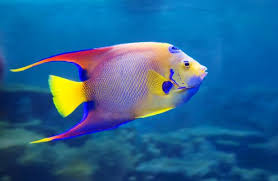
Probably the world without fish would also be the world with far fewer human beings. And without them, a large part of the population that has fish as a basic part of its diet would not exist, let’s not forget that many populations developed thanks to fishing activity. In addition, we would have to take into account that food products such as seaweed, shells or fishmeal would not exist.
The above analysis, which is very superficial, is already a complicated task when it comes to imagining the world. But the truth is that organizations such as WWF have carried out studies on the matter and warn that we are not too far from having to face such a dramatic and apocalyptic scenario. Let’s take a look at some of these data:
- Between 1970 and 2012, the global marine population declined by 49%. That means that we have needed just over 40 years to wipe out almost half of the life that existed in the seas and oceans.
- These sad and alarming figures, when it comes to certain species, such as bluefin tuna or sharks in general, are even more alarming and worrying, reaching up to 75% in some species.
In fact, the same WWF study states that in just 10 more years, 25% of shark species could become extinct. - We are talking about a worldwide disaster caused by negligent human activity. But the case of the Pacific Ocean is even worse; it is undoubtedly the most affected ocean.
- In the case of the seas, the Mediterranean is among the most affected. So much so that it is estimated that the reduction of marine life could be around 89%.
These are truly chilling figures caused by destruction, overexploitation and incessant pollution.
Now, awareness is the only hope to put a stop to this disaster and bring it back on track. Do your bit! By reducing the consumption of plastics, avoiding dumping garbage in the sea and adopting environmentally friendly measures and daily habits we can change the world.







